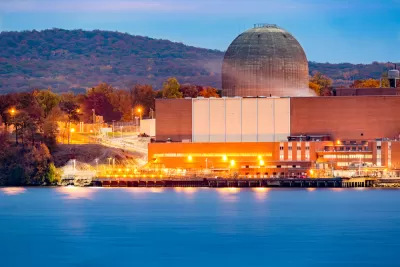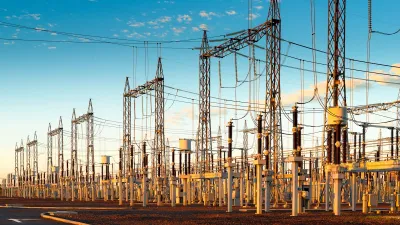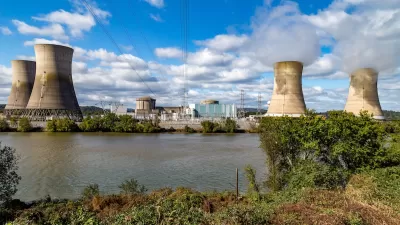Tech giants are seeking out renewable energy to fuel power-hungry data centers and AI applications.

As data centers and artificial intelligence demand more and more electricity, tech giants are looking for new ways to produce power. According to a report by Mark Segal in ESG Today, Google announced an agreement with nuclear technology company Kairos Power to produce up to 500 MW of energy at projects around the country.
“The agreement comes as Google and its tech giant peers look to address the growing emissions impact of their rapidly expanding data center footprints. While Google has set 2030 goals to reach net zero emissions across its operations and value chain, and to reduce 50% of its combined Scope 1, 2, and 3 absolute emissions, on a 2019 basis, the company recently reported that its emissions increased by 13% in 2023, and are up by 48% since 2019, as its growing data center electricity consumption has outpaced its ability to bring carbon free energy projects online.”
According to Segal, “The deal marks the first-ever agreement to purchase nuclear energy from multiple small modular reactors (SMRs), as well as Google’s first advanced nuclear deal, according to Google Senior Director, Energy and Climate, Michael Terrell.” Similarly, Microsoft made a deal to use power from the Three Mile Island nuclear plant, which could be reopened.
FULL STORY: Google Signs First Nuclear Energy Deal to Address Growing AI Carbon Footprint

Planetizen Federal Action Tracker
A weekly monitor of how Trump’s orders and actions are impacting planners and planning in America.

Chicago’s Ghost Rails
Just beneath the surface of the modern city lie the remnants of its expansive early 20th-century streetcar system.

San Antonio and Austin are Fusing Into one Massive Megaregion
The region spanning the two central Texas cities is growing fast, posing challenges for local infrastructure and water supplies.

Since Zion's Shuttles Went Electric “The Smog is Gone”
Visitors to Zion National Park can enjoy the canyon via the nation’s first fully electric park shuttle system.

Trump Distributing DOT Safety Funds at 1/10 Rate of Biden
Funds for Safe Streets and other transportation safety and equity programs are being held up by administrative reviews and conflicts with the Trump administration’s priorities.

German Cities Subsidize Taxis for Women Amid Wave of Violence
Free or low-cost taxi rides can help women navigate cities more safely, but critics say the programs don't address the root causes of violence against women.
Urban Design for Planners 1: Software Tools
This six-course series explores essential urban design concepts using open source software and equips planners with the tools they need to participate fully in the urban design process.
Planning for Universal Design
Learn the tools for implementing Universal Design in planning regulations.
planning NEXT
Appalachian Highlands Housing Partners
Mpact (founded as Rail~Volution)
City of Camden Redevelopment Agency
City of Astoria
City of Portland
City of Laramie





























